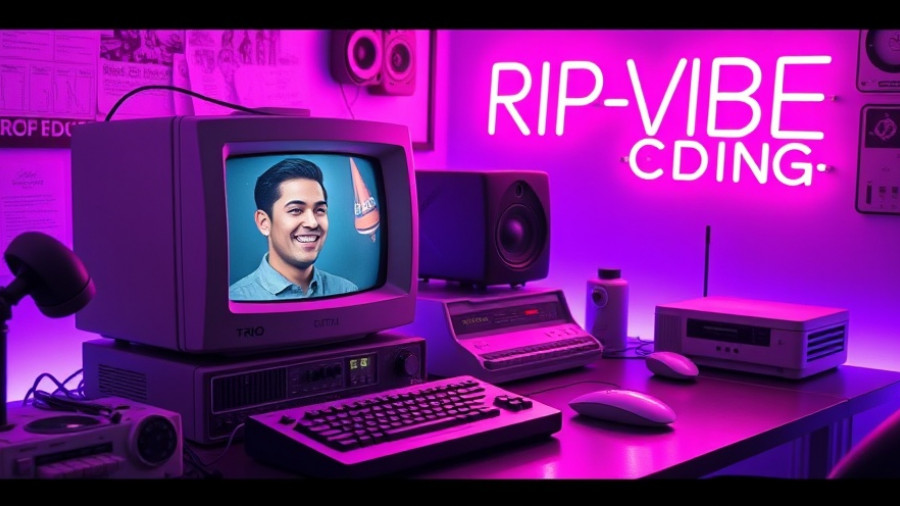
Understanding the Rise and Fall of Vibe Coding
As we explore the evolving landscape of artificial intelligence and coding, it's essential to dissect the recent declaration by Shawn Wang, famously known as Swix, regarding the "end of vibe coding". This term, which encapsulates a trend of simplified, often non-technical software creation, has been a buzzword among tech enthusiasts and developers alike. Yet, as Swix points out in his discussion, the realization is dawning on many programmers: vibe coding provides a superficial, sometimes misleading sense of accomplishment.
In 'RIP Vibe Coding. Feb 2025-Oct 2025.', the discussion dives into the emerging trends in AI coding, exploring key insights that sparked deeper analysis on our end.
The Transition from Vibe to Substance
The root of the discomfort with vibe coding stems from its implications for serious programming: Non-developers might rush through coding tasks without mastering the underlying complexities of software development. This disparity raises a pivotal question among software engineers: How do we bridge the gap between non-technical users and robust coding practices?
Swix urges a collective reflection within the engineering community, emphasizing the need to cultivate a richer understanding of coding, which is becoming paramount as developments in AI advance. The rise of platforms like AI Engineer Code Summit illustrates this shift, aiming to connect different sectors of the coding community—both technical and non-technical—in a shared learning environment.
Impacts of AI Innovations on the Coding Community
This year has seen remarkable advancements in AI technology related to coding, leading to a concept Swix labels as “AI coding agents.” These tools are not just enhancing productivity; they're reshaping the paradigms under which developers operate. Solutions like Cognition and Cursor have gained significant attention, becoming integral for both individual contributors and enterprises.
This evolution asks engineers to adapt—from focusing solely on traditional coding skills to integrating AI tools, thereby developing a deeper understanding of the complexities involved in software engineering. AI tools are providing opportunities for developers to engage with their work in more meaningful ways, making coding less about strictly syntax and more about creating functional, reliable applications.
The Need for Clear Definitions in Coding
As Swix expressed, there's an ongoing challenge of defining terms like "vibe coding" and acknowledging that they carry different meanings across various sectors. The delineation between amateur and professional coding has become blurred with the democratization of AI-powered coding tools, which can led to confusion over product readiness.
As developers and business owners, it's important to articulate these terms clearly to establish a common ground and understanding, and avoid pitfalls in project outcomes. This aids not only in building better applications but also in setting realistic expectations both within teams and among clients.
Navigating the Future: Predictions for AI Coding
The trajectory of AI in coding suggests a trend toward greater collaboration and integration. By 2025, we might anticipate a shift wherein coding no longer exists solely within traditional confines, opening pathways for hybrid roles where understanding the essence of coding becomes as valuable as mastering specific languages.
Swix hints that "spectrum development" may arise as a solution, allowing developers to work effectively within both AI-driven and traditional coding domains. This holistic approach may soon redefine professional pathways in the tech industry, paving the way for a new class of engineers who can seamlessly navigate between the tools, strategies, and cultural nuances affecting software development.
Conclusion: The Call to Action for Businesses
As the boundaries of coding continue to shift, it imperative for businesses to adopt these emerging tools and understand the vast landscape of AI in coding. Embracing this evolution not only enhances organizational capabilities but also positions your business as a front-runner in the competitive tech landscape. It's time to grasp the potential of AI in coding and take direct steps towards incorporating it in everyday operations.
START USING AI NOW
 Add Row
Add Row  Add
Add 




Write A Comment